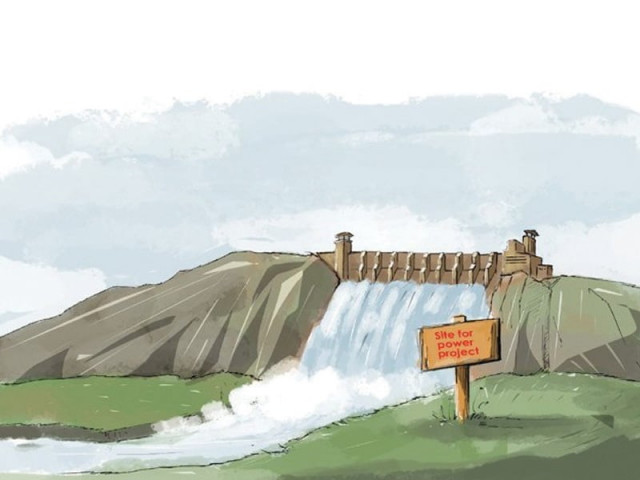Dam difficulties
The chronic failure to coordinate, curses any number of developments vital to the national economy.

Pakistan cannot grow without power and some joined-up problem-solving is essential if the Diamer-Bhasha Dam is ever to generate any. ILLUSTRATION: JAMAL KHURSHID
In terms of priority, the boundary dispute probably heads the list, closely followed by compensation to the 4,228 households that will be affected. Revenue matters are unlikely to have a ‘quick fix’ and it is vital to the national interest that work starts on the dam and proceeds at all speed.
There is going to be an environmental impact, there always is when a dam is built anywhere, but some of the wilder predictions — such as Gilgit being beset by perpetual rains and storms — are largely discounted. What is evident is that there was a poverty of joined-up thinking from the outset of the project and a failure to have all the stakeholders in the loop. That chronic failure to coordinate, curses any number of developments vital to the national economy. Pakistan cannot grow without power and some joined-up problem-solving is essential if the Diamer-Bhasha Dam is ever to generate any.
Published in The Express Tribune, February 8th, 2014.
Like Opinion & Editorial on Facebook, follow @ETOpEd on Twitter to receive all updates on all our daily pieces.















COMMENTS
Comments are moderated and generally will be posted if they are on-topic and not abusive.
For more information, please see our Comments FAQ